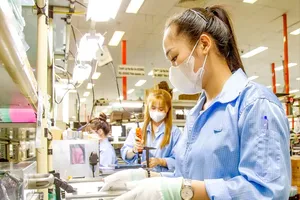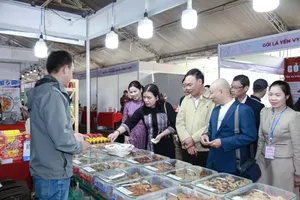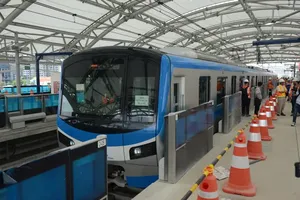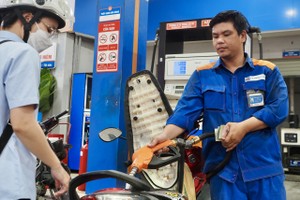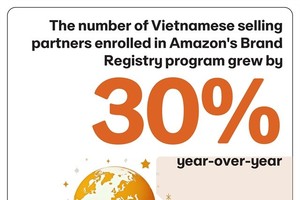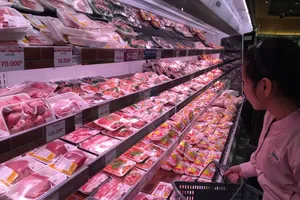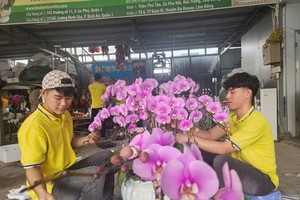Data from the General Statistics Office (GSO) show that exports were estimated at US$103.9 billion during the period, up 28.3 percent year-on-year. Up to 19 types of goods earned more than $1 billion in export revenue each, or 84.5 percent of the total.
As of late April, garment exports were up 9 percent year-on-year to $9.5 billion while footwear shipments had hit $6.4 billion, an 18.7 percent increase.
The Ministry of Industry and Trade has forecast that exports and imports will continue to thrive in the near future as new free trade agreements with preferential tariffs are implemented, including the Comprehensive and Progressive Agreement for Trans-Pacific Partnership (CPTPP), the EU-Vietnam Free Trade Agreement (EVFTA), and the UK-Vietnam Free Trade Agreement (UKVFTA).
Companies, however, face challenges caused by rising material and transportation costs as well as the uncertainties over COVID-19 in the region.
Nguyen Quoc Anh, Director of the Duc Minh Rubber Company and Chairman of the Ho Chi Minh City Rubber Plastic Manufacturers Association, said that since early this year the price of materials, chemicals, and rubber additives have soared 60 percent and show no signs of stabilizing.
Many partners are hesitant to place orders and are waiting for prices to decline. Meanwhile, if companies were to sell their products at previous prices they would incur losses despite rising volumes, he said.
Experts have suggested building industrial zones designed exclusively for manufacturing apparel and footwear materials as well as devising a strategy to develop the supply of domestically-made materials for production and export, thus helping firms control costs and tap the advantages contained in free trade deals.






